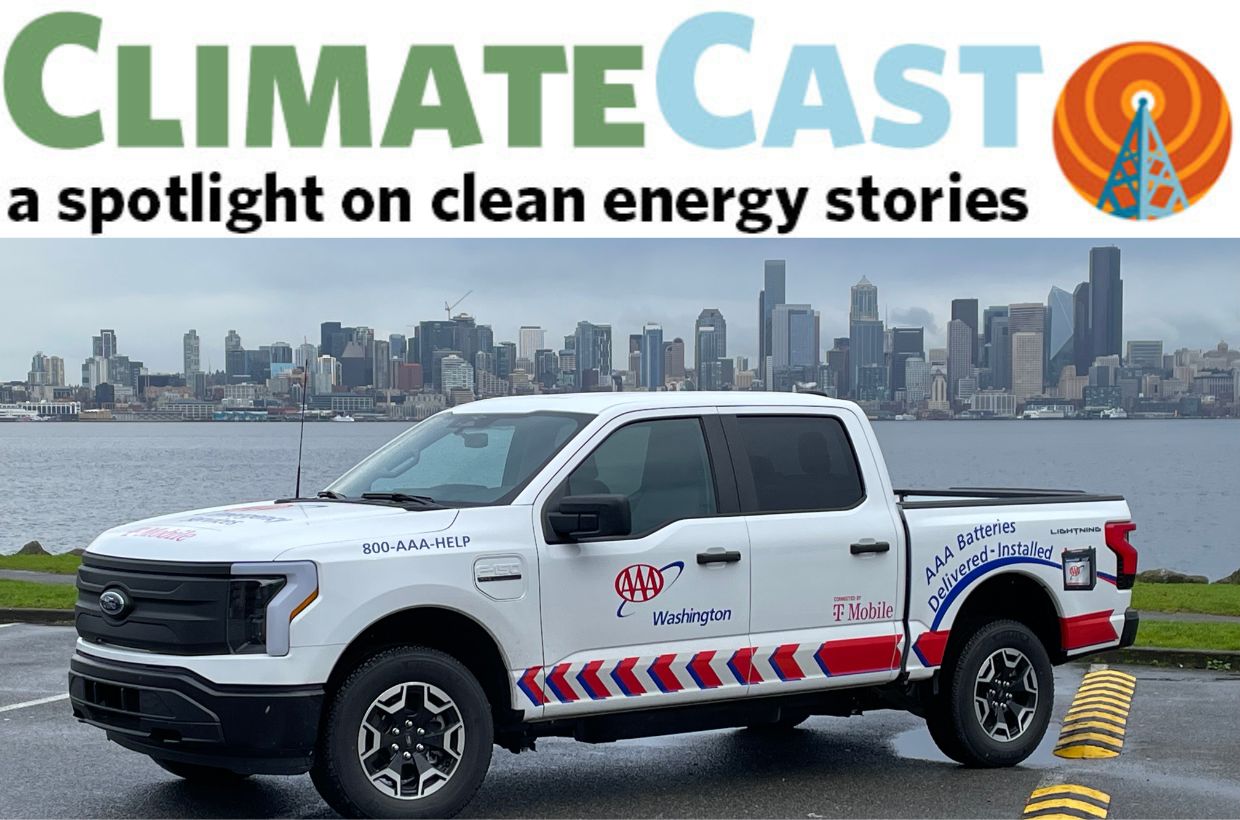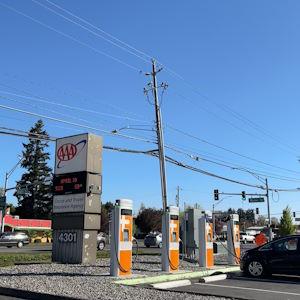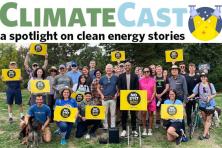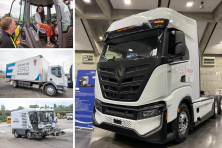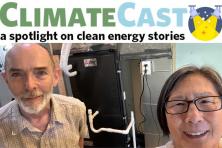Each month, ClimateCast features a Story Spotlight, covering climate issues and clean energy solutions that prioritize human experiences and connections in communities across the Pacific Northwest.
Every driver and passenger dreads it. You climb into the car…and it won’t start. Or you’re in a vehicle cruising down the highway and a red warning light appears on the dashboard. Or perhaps the vehicle fails more dramatically. You’re possibly stuck. Now what?
As the largest provider of roadside assistance services in the Evergreen State, AAA Washington responds to calls for all kinds of jams — and soon they’ll be responding to help with more fossil-free vehicles. “As an organization that manages a fleet, it’s important to us that we [explore electrification] mindfully in keeping with our core values of being engaged not only for the needs of our members but also those of the communities within our territory,” said Percy Hoffmann, AAA Washington’s Vice President of Automotive Services.
AAA Washington has provided their members with fuel-agnostic roadside services (e.g., tire changes, lockout assistance, towing) and access to free EV battery analytics reports for several years. They have also developed an online EV toolkit (comprised of their Car Guide, Driving Costs Calculator, and EV Website Hub), offering information about the total cost of ownership, available tax incentives, and insights into electric car charging. And last year, the AAA Washington team took an Eastern Washington EV road trip between Spokane, Wenatchee, and Yakima.
Now they’re exploring opportunities to transition their service fleet, as they were in a bit of a jam themselves. “Investing in medium- and heavy-duty zero-emissions trucks across our fleet remains a longer-term strategic objective due to the complex and costly nature of accommodating our specific operational needs,” Hoffmann explained. Plainly put, there are no viable zero-emission tow trucks available on the market today.
Transportation is Washington state’s largest source of climate pollution. Medium- and heavy-duty diesel-powered vehicles are responsible for a disproportionate amount of that pollution. In addition to greenhouse gasses, diesel-burning engines produce particulate matter air pollution (PM2.5), which disproportionately harms Black and Indigenous communities, along with other communities of color and other historically marginalized groups. Exposure is linked to negative health outcomes including increased rates of asthma in children. As such, climate advocates are clamoring for fleet operators like AAA Washington to adopt zero-emission vehicles as a significant climate and clean air priority.
Are you a business leader with a fleet, or do you know of a business that wants to transition its vehicles? Sign up for the next Breaking Barriers Collaborative's Fleet Decarbonization Accelerator program cohort that starts in September 2024.
How did AAA Washington accelerate its transition? The organization recently participated in the Breaking Barriers Collaborative’s Fleet Decarbonization Accelerator program.
The Breaking Barriers Collaborative, co-founded by the Washington Build Back Black Alliance, the WAVE Foundation, the Clean & Prosperous Institute, Oregon Business for Climate, and Climate Solutions, supports businesses and institutions in the Pacific Northwest that want to do more on climate and equitable action with their business, but need help to enact solutions such as decarbonizing vehicle fleets.
“It's gratifying to see how much progress AAA Washington has made in a short period of time,” said Paul Bloom, Program Director of the Breaking Barriers Collaborative. “Transitioning to a zero-emissions fleet can seem daunting, but Fleet Decarbonization Accelerator graduates tell us that our structured, hands-on, cohort-based program gives them the knowledge, tools and support they need to create an actionable plan and business case. You could say that we're the ‘roadside assistance’ for organizations that want to decarbonize their fleets but find themselves stuck."
After participating in the Fleet Decarbonization Accelerator program, AAA Washington installed EV charging stations at its fleet facilities, HQ in Factoria, and some of its travel stores. They are investigating alternative low-carbon fuels like renewable diesel for their existing fleet vehicles and recently purchased a zero-emission electric light-duty vehicle for testing (with plans to order more in the future). They sent a representative to serve on the Washington State EV Industry Advisory Committee, helping to inform the state’s transportation electrification strategy. Finally, AAA WA has been encouraging policymakers to offer additional incentives for WA-based organizations and businesses considering medium- and heavy-duty zero-emission vehicles.
“The testing process for our new light-duty battery-electric service vehicle, the Ford F-150 Lightning truck, will be methodical and comprehensive,” said Hoffmann. “As with any introduction of new technology, we have encountered unforeseen challenges, underscoring the necessity of our rigorous testing protocols. Our primary objective throughout this process has been to ensure the seamless integration of these vehicles into our fleet, optimizing their performance and reliability for our members.”
Businesses and organizations like AAA Washington have discovered the viability and benefits of electric vehicles in all shapes and sizes. Electric roadside service vehicles have numerous advantages for service providers, stranded motorists, and the surrounding community: lower fuel and maintenance costs, zero tailpipe pollution, a smoother ride, and full torque on demand (i.e., no need to rev up).
That said, fleet changes are inevitably complicated, doubly so for organizations like AAA Washington, which use their fleets to provide specialized services. The Breaking Barriers Collaborative’s Fleet Decarbonization Accelerator program works directly with fleet managers and other organization leaders to identify, assess, and overcome the operational challenges of adopting a carbon-free fleet while keeping their business on track. Stay tuned for more stories about businesses and organizations flipping their fleets.
Editor's note: This article is informational. Climate Solutions does not endorse any commercial product or service unless otherwise specified.
